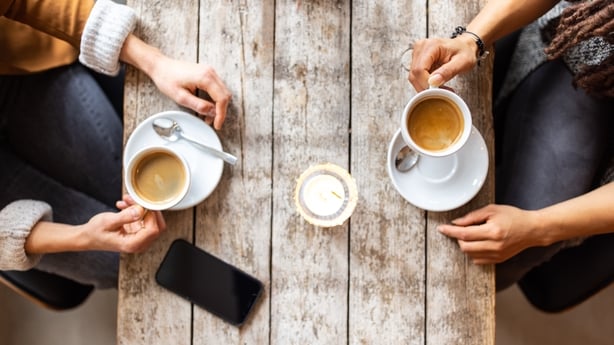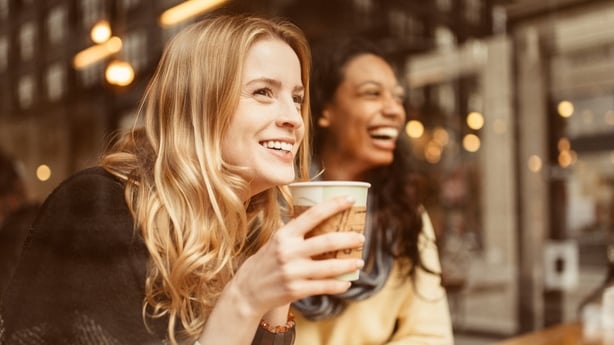Dr. Susan Kelleher, Assistant Professor in the School of Chemical Sciences at DCU, joined Drivetime to discuss how effective your favourite cup of joe really is. Listen back above.
For many people, the day can't start until they've had their cup of coffee.
Whether it's the jolt of caffeine, the ritual of making it or the pleasure of a hot drink to soothe the nerves, coffee is a seemingly necessary jump start to the morning for a lot of us, and a means of getting through the rest of the day for many more.
However, how big of a role does coffee itself play in perking us up? Though we think of it as rocket fuel, a group of scientists in Portugal have claimed that the revitalising feeling of sipping on a coffee may be a placebo effect.

"What we can say is their experiements showed definitely something between drinking coffee and just having caffeine", Kelleher said. The study was published this week and followed people who drank a minimum of one cup of coffee a day.
The scientists then scanned their brains in an MRI machine, both before they drank anything and after drinking either a cup of coffee or hot water with the same amount of caffeine in it.
"They saw that after drinking both cups of the coffee and the caffeine drink, the pathways in the brain that are involved with introspection basically decreased in activity. This basically meant that the participants went from quite a restful mode to a work mode", Kelleher explained - essentially that they were less likely to daydream and more likely to focus on tasks at hand.
However, they happened upon another unexpected finding: "That drinking the coffee also increased the connectivity between parts of the brain responsible for working memory and goal-directed behaviour, so the 'get up and go' kind of attitude, whereas just the caffeine itself did not."
While scientists know that caffeine has many physiological effects, such as increasing blood pressure and a short-term increase in cognitive ability, Kelleher says that the effects of drinking coffee itself might come from the smell, taste and colour, which provokes a certain response in the brain.

How does this explain those of us who wake up with a craving for a cup of coffee? "There's a lot going on in coffee", Kelleher said. "It's not just caffeine alone."
As anyone who has tried to scale back their coffee drinking, doing so can bring on clear physical withdrawal symptoms. "It does pass", Kelleher said. "It peaks at around two days, and after about seven days it is gone. It ultimately depends on how much you're taking and how used to it your body is, but there aren't long-term effects."
If the ritual is what perks us up, rather than the coffee itself, can we replace our usual Americano or Cappucino for another hot drink?
"Any habit will help you get up in the morning", Kelleher said. "Sometimes just knowing that you've to get up to go downstairs to get your coffee is a good motivator for getting up." For many people, this might be tea or matcha or a really delicious smoothie.
As for how much coffee is too much, Kelleher says that while caffeine is addictive, if you keep it under 400mg a day it won't cause long-term harm. "It's all about moderation, as always with these things."
To listen back to the full interview, click above.
